These games are great, except for that ONE thing
That misstep's a doozy
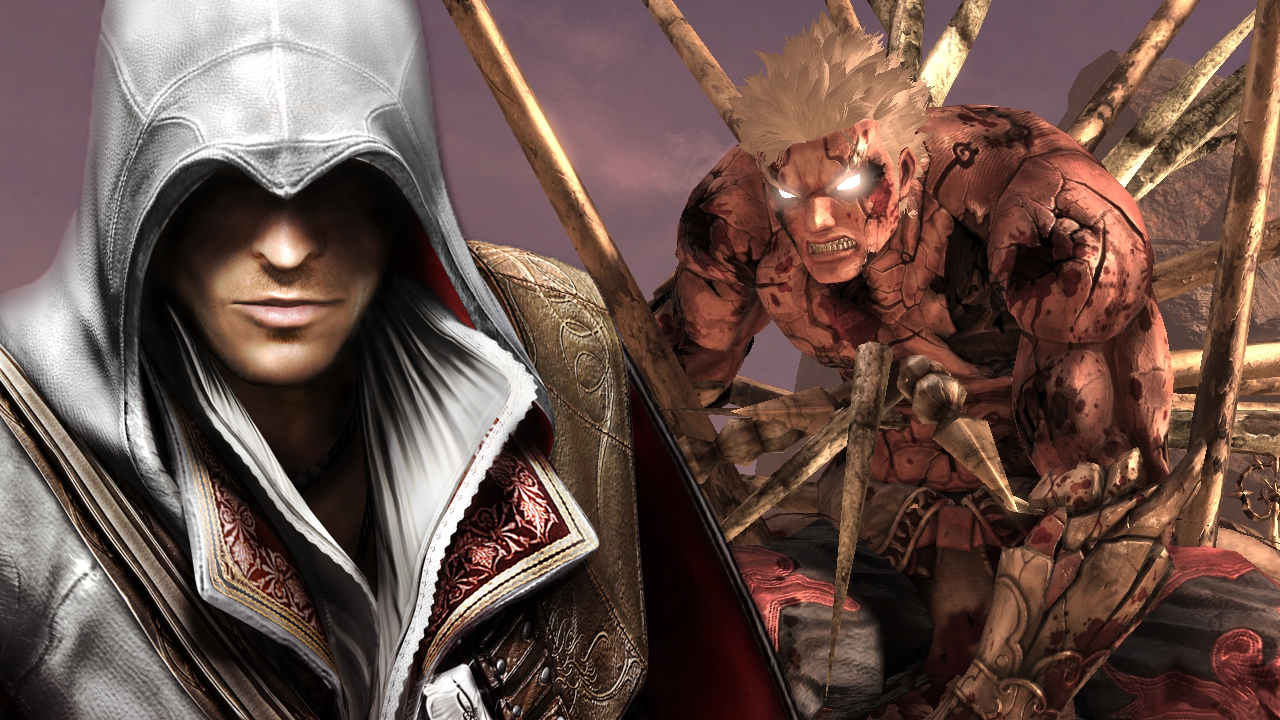
Everybody has one. There's a game you absolutely love for all the ways it entertains, surprises, and delights you with its digital splendor. You easily rank it among your favorite games of all time - but there's that one thing that it gets totally wrong. Maybe's it's a particular boss, or level, or cringe-worthy bit of dialogue ("I don't have time to explain why I don't have time to explain", anyone?). And while it's not significant enough to ruin the entire experience, these shortcomings can be a glaring blemish on an otherwise amazing experience.
And that's ok. No game is perfect, and many titles excel despite that one obvious flaw that might otherwise hold them back. Doesn't mean we can't still call these games out on their screw-ups, though. We've rounded up some flawed favorites that the GR+ editors hold dear, and it's time to get these conflicted feelings off our collective chests. If you've played any of these games, you'll definitely know what we're talking about.
Psychonauts' Meat Circus (Susan Arendt)
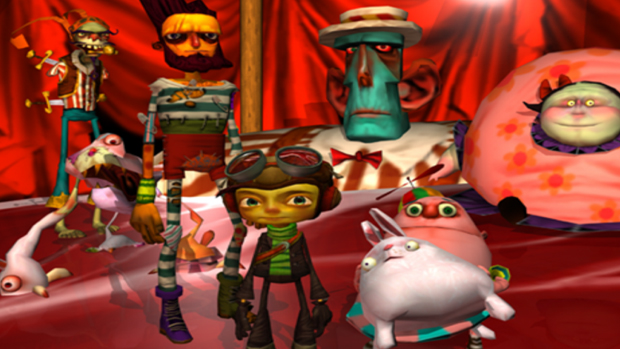
Psychonauts is delightful. It's funny, charming, endearing - the very definition of quirky. Though its levels are a bit uneven (one simply cannot compare Milla's Dance Party with the brilliance that is The Milkman Conspiracy or even Lungfishopolis) and its platforming is pretty standard fare, but it's nearly impossible to beat Psychonauts for sheer, unbridled creativity. Does it really matter that it relies on tropes like collectibles when you have such memorable characters and visual style? Nope, not a bit.
Psychonauts' controls were never overly crisp, but whatever you were doing and wherever you were doing it was interesting enough to balance your frustration. Until you reach The Meat Circus, that is. The final level of Psychonauts is, to be blunt, complete bullshit. The first section of the Meat Circus combines three of the worst elements in video game design: it's timed, it's an escort mission, and it has a terrible camera. It's the culmination of Psychonauts' engaging story, and it's so unfun that it makes you wonder if you really, truly need to see Raz emerge victorious. Tossing the controller to the side and imagining your own ending to this otherwise wonderful gaming experience is a far better option than slogging through its finale.
Assassin's Creed 2's final boss (Louise Blain)
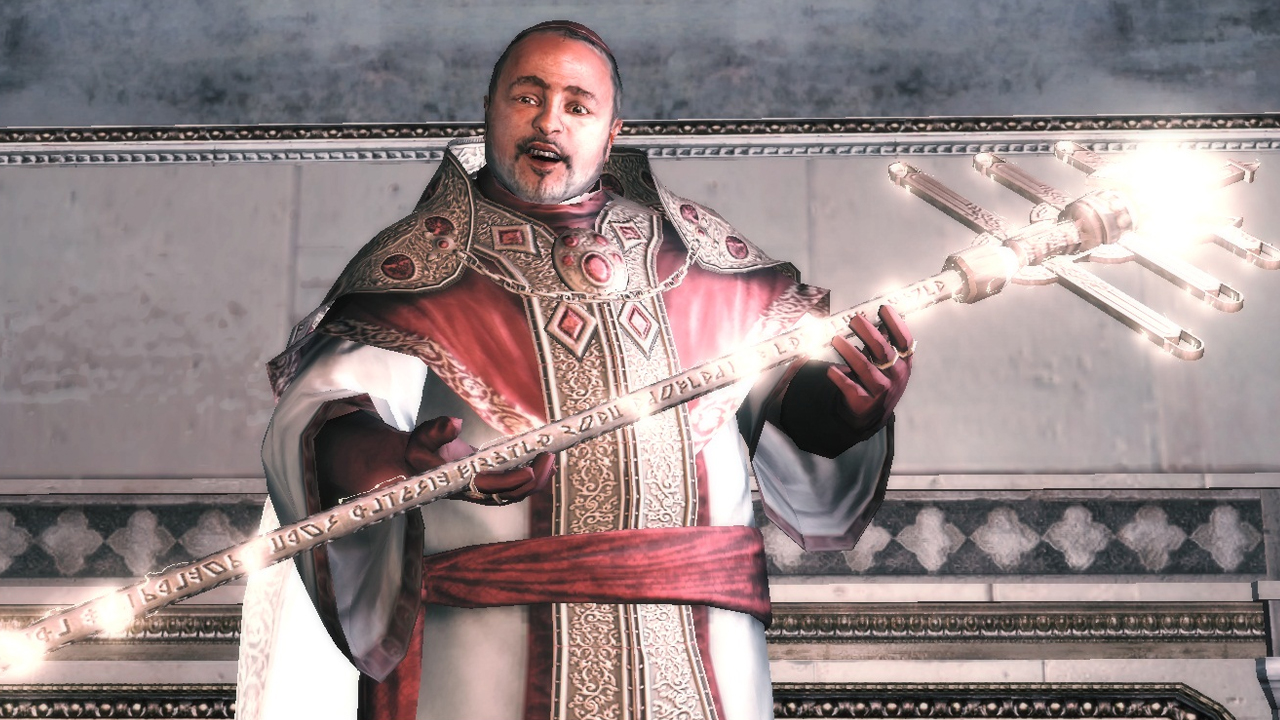
Assassin's Creed 2 might just be my favorite game. I'd stopped playing my PS3 altogether for a few months, but I picked it back up for AC2 and was suddenly transported to Renaissance Italy. Freerunning was a revelation. Da Vinci was designing my weapons. I was a master of stealth stabbing. Florence! Venice! Tuscany! Gosh, am I in Rome?
And then. The finale I like to forget. Look away if you'd rather I didn't spoil a six-year-old game. After spending hours in beautiful atmospheric cities, taking in the sights from the Piazza San Marco, upgrading endless shiny weapons, the pinnacle of the game was having a fist fight with the Pope. An extended, awkward fist fight where an old man kept falling down and letting you punch him. From the sublime to the utterly ridiculous. I was cowering in embarrassment. It started stupid. It ended worse. And to top it all off? Ezio didn't even kill Pope Borgia. Ugh.
Splinter Cell: Conviction's Iraq flashback (Andy Hartup)
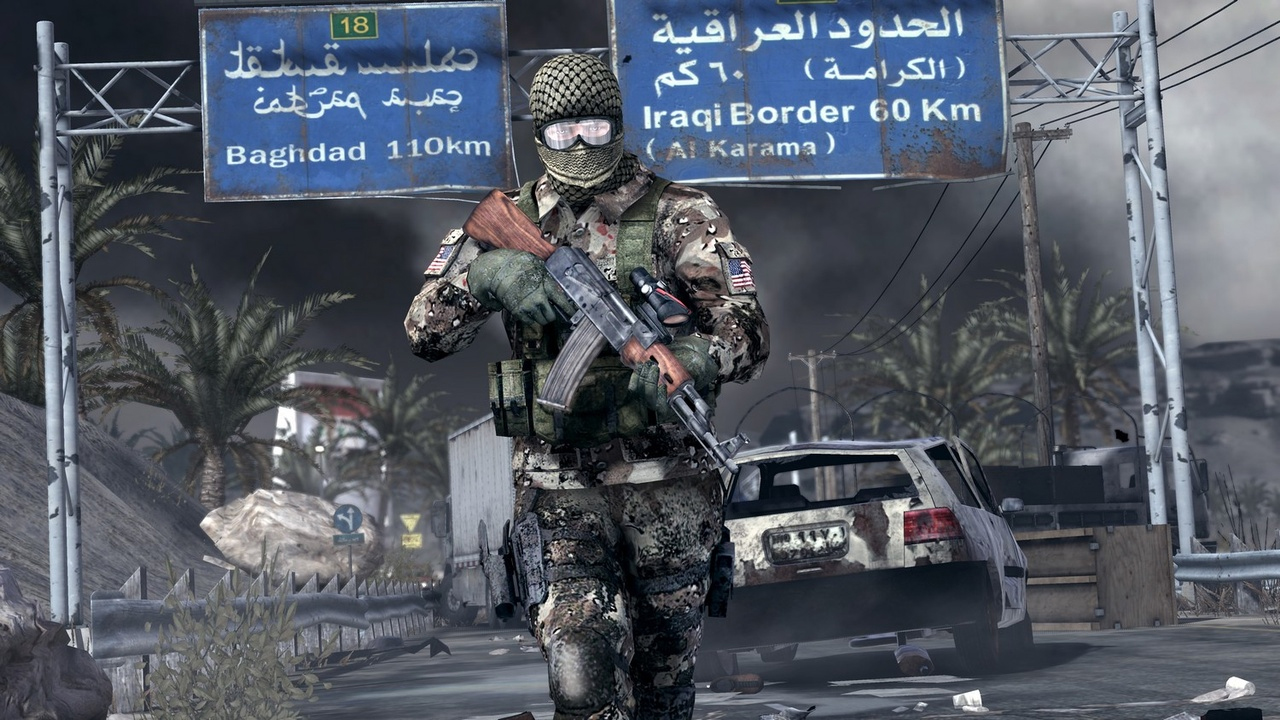
Despite numerous redesigns and lengthy delays, Conviction emerged as a wonderfully fresh start for the Splinter Cell series. Its emphasis on aggressive, Bourne Identity-inspired stealth set the template for almost all subsequent sneaking games because... well, it feels so damn satisfying to play. Conviction hits some great story beats too, and they play out over a host of thoughtfully designed levels. Well, apart from one particular stage which is as baffling as it is unnecessary: the flashback to Iraq.
Weekly digests, tales from the communities you love, and more
Having just eased players into the new, free-flowing stealth, Conviction yanks them out of the groove and into an awkwardly designed third-person shooter stage, clumsily shoehorned into the narrative as a flashback. It's clear that the developer is trying to shock players - shooting? In a Splinter Cell game? Oh Mr. Darcy, I am undone - especially given the cheeky reveal at the mission's climax. Sadly it all falls hideously flat, like a harmless prank resulting in the loss of your friend's index finger. Why? Because Splinter Cell is built to be a stealth game, and it plays awfully as a shooter. Stick to what you know, people!
Red Dead Redemption's Mexico (Paul Taylor)
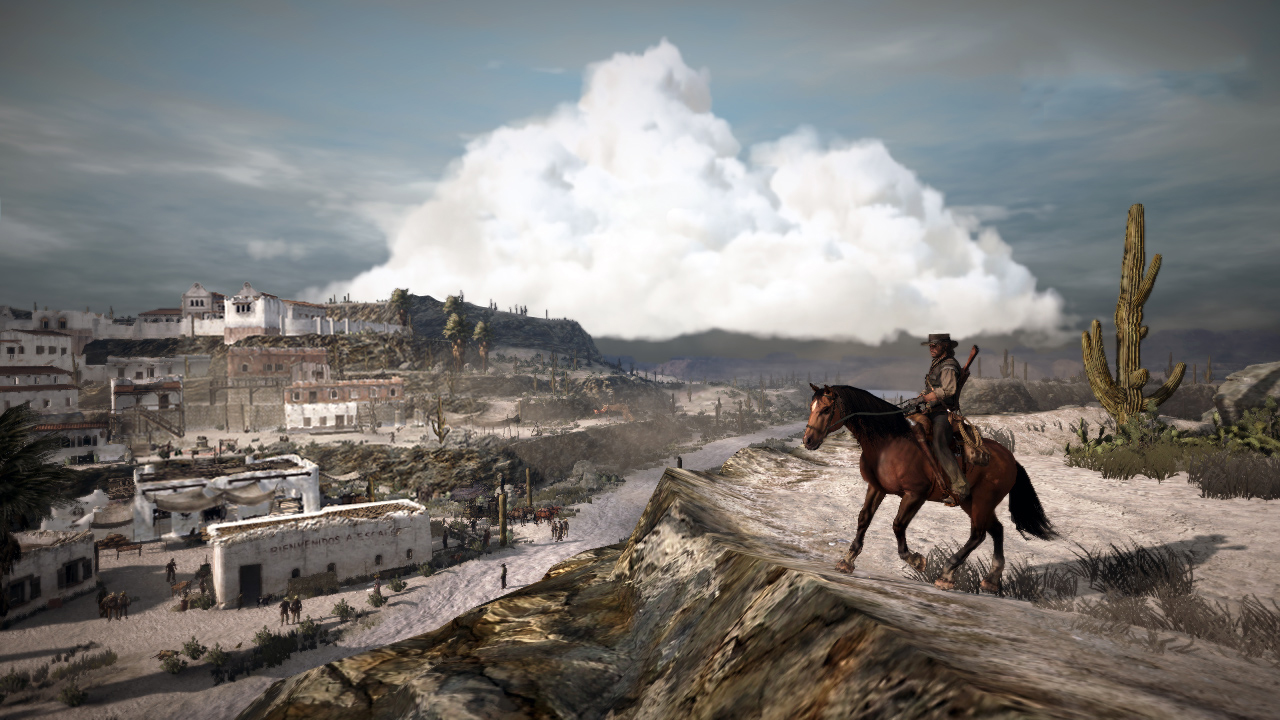
While it might be quaint by today's standards set by Far Cry, Grand Theft Auto and Skyrim, Rockstar's wild frontier offered enviable freedom to simply be, while it was sculpted enough to showcase a beautiful story of revenge and (unsurprisingly) redemption. This is a world punctuated by rolling, layered thunderstorms that fill a wide sky uncluttered by towering buildings or mountains, populated by eccentric and damaged characters integral to your cause. It was the first hint of the procedural gameplay we now take for granted (a hare, being chased by a dog, being chased by a wolf), and features a soundtrack that could make a man weep.
So it's a crying shame that all this beauty, this sheer openness and offering of choice, couldn't be betrayed to funnel players towards some of its most memorable beats. My crossing the border into Mexico, backed by lilting guitars, went from breathtaking to broken as I galloped across the land - and promptly fell off my horse for one reason or another and died, spawning ahead of where I was and thus missing out on what my mates had said was a profound moment. I swore at the busted checkpoint system, but Rockstar couldn't have segued into a long cutscene, or forced my horse to trot rather than tear ahead. That's the exact opposite of a wild frontier. Really, though, the checkpoint system wasn't the one thing that was broken about Red Dead Redemption: it was me.
God of War 3's post-credits ending (David Roberts)
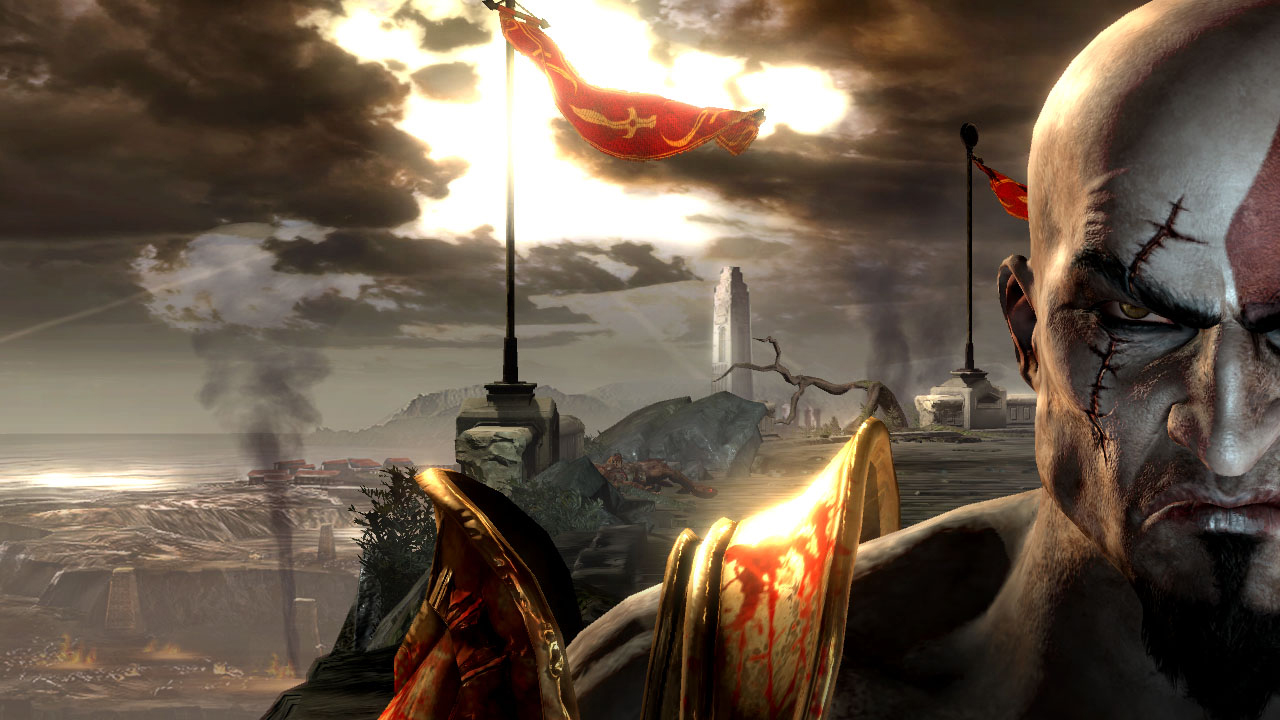
God of War 3 may not be a perfect game, but it's a fitting closing chapter to Kratos' campaign of rage and revenge (Ragevengeance? Your move, Kojima). Yeah, Kratos may have made another unnecessary pit stop in Hades, but it's a mere blip on his 'Greek Pantheon Murder Tour 2010', as he works his way from god to god, ripping off heads or bashing in skulls. It's super violent, cheesy stuff, but when he pays the ultimate sacrifice to finally off Zeus at the end of his quest, it's kind of poetic. Sure, he's murdered everyone, but in doing so, he has unleashed untold terrors on the Earth. He lays on the ground, bleeding out as the world falls apart around him. It's a bold move to end on, but dammit, it works. And now, we close the book on Kratos' saga...
Except we don't. Halfway through the credits, we go back to Kratos' resting place - only he's not there any more. The camera pans across a trail of blood, off the side of the mountain, and out toward the horizon where storms rage across the ocean. Surprise! Kratos isn't dead, and he's off to go and brood somewhere else. Whatever emotional impact that ending had was ripped away because Sony Santa Monica was afraid to just let the series end here, instead deciding to toss a question mark on this supposed epilogue. I wanted this moment to finally provide closure for Kratos. Now? I just don't care any more.
ModNation Racers' racing (Justin Towell)
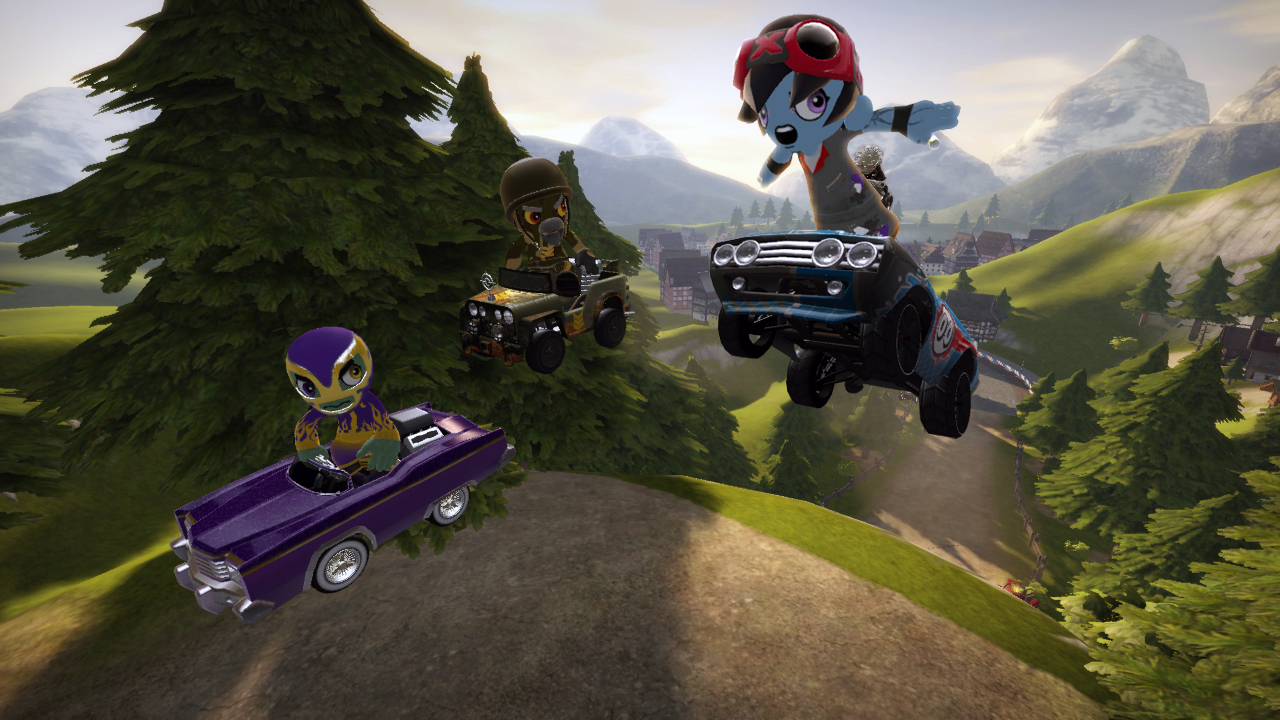
ModNation's amazing track builder lets you make pretty much anything you can think of. Fantastic user-created content is up-voted by the community, you can download other people's amazing work for free (if they let you, which most do), and it all looks beautiful, with countless objects you can place in its world. ModNation has everything it needs to be the best racer ever.
Except for the racing. Yes, facepalm indeed. The racing is best described as adequate. The sense of speed, powerslide-y fun-ness (yes, that is the scientific term), and weapon set are all perfunctory. Par for the course. Only they're not really par for the course, because - as we've just explored - the course itself is amazing. So this is more like a bogey, if for some reason we're using a golfing analogy for a racing game. A great big bogey on an otherwise beautiful face. That sums it up quite nicely.
Tactics Ogre: Let Us Cling Together's crafting (Maxwell McGee)
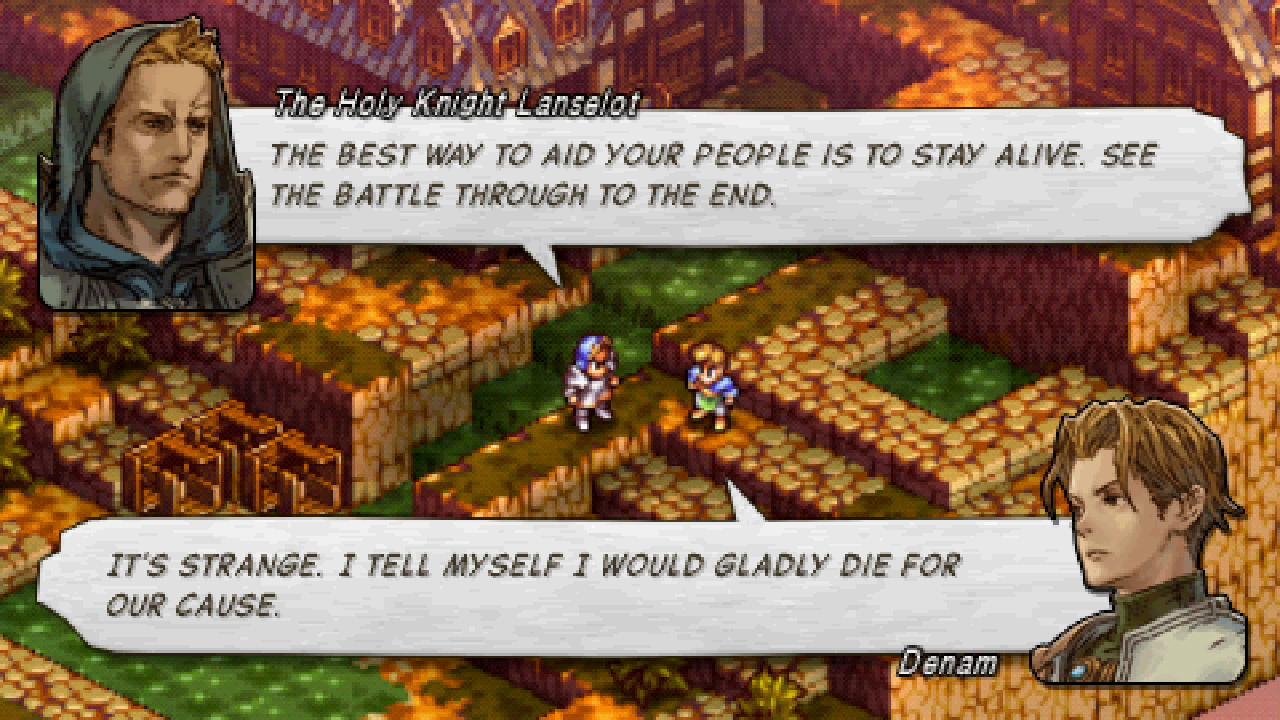
As someone whose idea of a good time is scouring the internet for innovative Final Fantasy Tactics character builds, I was enchanted by Tactics Ogre: Let Us Cling Together. This remake of the 1995 Super Famicom classic is, by all accounts, excellent. There's a ton of tactical depth to discover in how you customize your fighters, and the localization of Ogre's Shakespearean plot is masterfully handled. I'd probably still be playing it today, were it not for one glaring, irredeemable flaw: the item crafting.
Item crafting in Tactics Ogre: Let Us Cling Together is laughably tedious; a cruel joke that reveals the developers' long-repressed masochistic tendencies. What should've taken 60 seconds and a few button presses lasts forever, as an unholy trifecta of unnecessary menus, animations, and redundancies suck all joy from your life. Why can't I craft multiple items at once? Why do I have to watch this stupid animation of the item being made every time? Why do the menus not default to 'Yes' when I click through them so I can at least watch Netflix while making 700 iron-freaking-ingots?
Batman: Arkham City's Augmented Reality training (Lucas Sullivan)
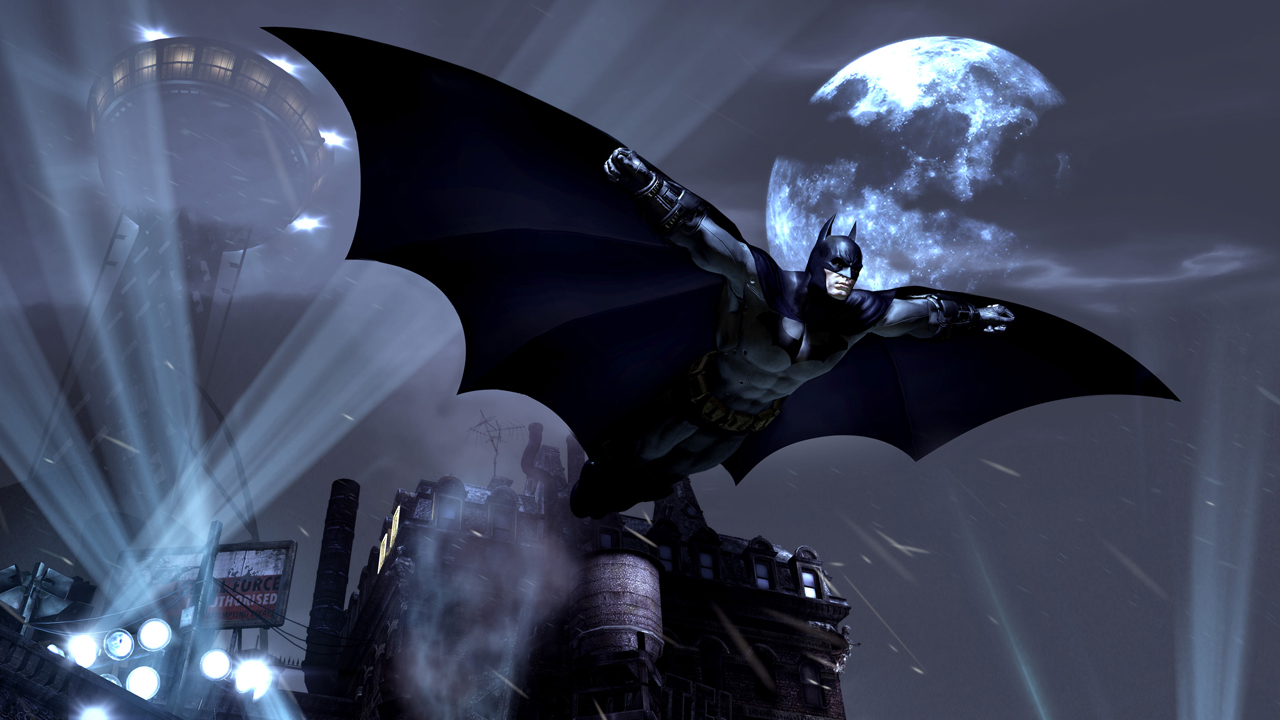
The Arkham series perfectly captures the best aspects of Batman: his diverse Rogues Gallery, detective skills, cool gadgets, and knack for walloping thugs into unconsciousness. And Batman: Arkham City strikes the perfect balance between focused crime-fighting and aimless exploration, as you have the freedom to grapple atop any building and take flight from on high. So I can understand why the AR Training challenges exist: miniature trials that require you to cape-glide along a set path, teaching you subtle altitude-shifting techniques in the process.
But good God, are they no fun. The first set of AR lines is simple enough, giving you the confidence that maybe you've mastered the art of flight. Then, like a cruel math teacher transitioning from simple addition to abstract algebra, the AR Training Advanced courses drop you into extensive, bafflingly difficult flight missions that you will never complete on the first try. Maybe if you could instantly restart post-failure, the Advanced runs wouldn't be so bad - but nope, you've got to hoof it back to the starting line every single time you fall (and you will fall). You know who else spent his time flying through rings suspended in midair? Superman. And look where that got him.
Asura's Wrath's ending, sold separately (Ludwig Kietzmann)
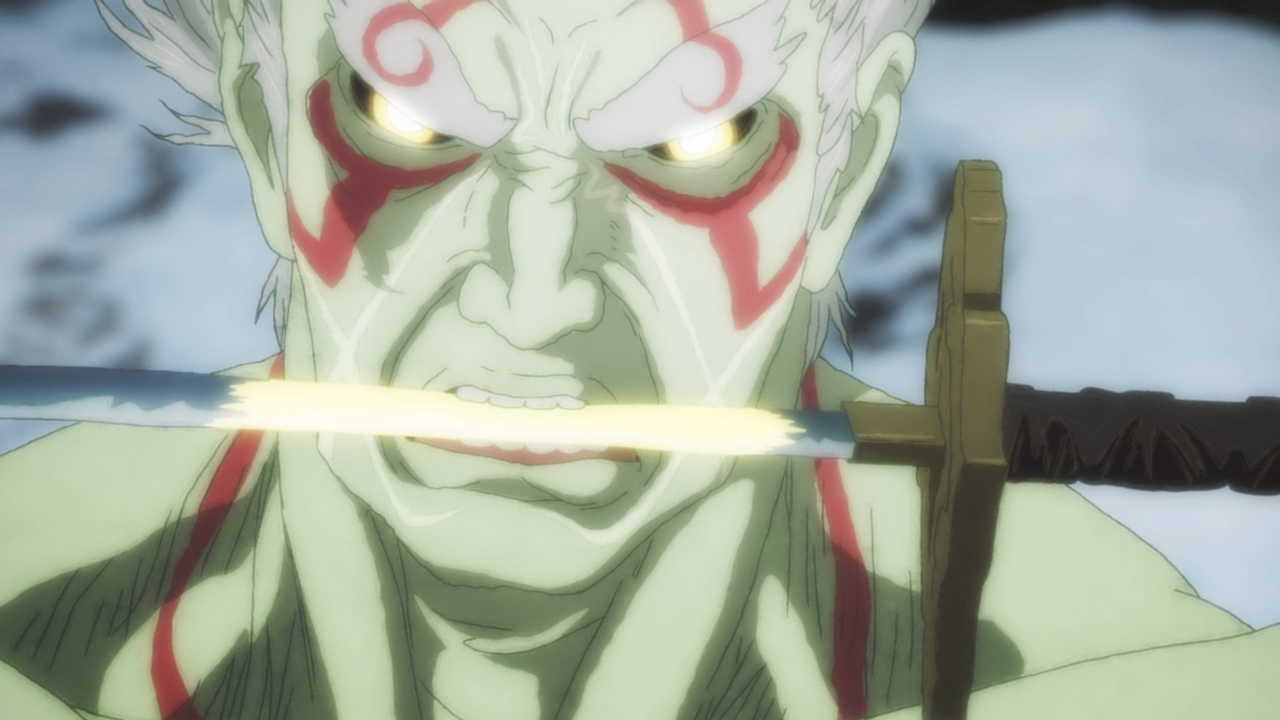
For a game that rattles with vibrant, larger-than-life battles and outlandish one-upmanship between one spectacle and the next, Asura's Wrath is somehow a coherent, even touching story. The central character - a betrayed and fallen god - barrels through life, death, and even the moon in his blind rage, and it all leads to an apocalyptic showdown in (what else?)... OUTER SPACE. The writers bring an absurd revenge plot to a close without getting preachy or crushing any sympathy you had for the protagonist, and fully embrace the game's habit of transforming deities into boss fights. Yup, Asura's Wrath has a great ending. That you have to buy. Separately.
Perhaps Capcom's calculated exclusion of a vital part of the game is meant to bring you closer to Asura, closer to the rage of learning - at the last minute - that you've been tricked. It's not that DLC exists to extend the game, I can live with that, but that it's coldly inserted at the moment you'd want it the most. The fiscal cut-off in Capcom's design wasn't well received, of course, but the worst thing is that it proved the cynical doom-view of DLC: Someone really did chop out the ending of a game to make some extra money.
Metal Gear Solid: Peace Walker's boss battles (Connor Sheridan)
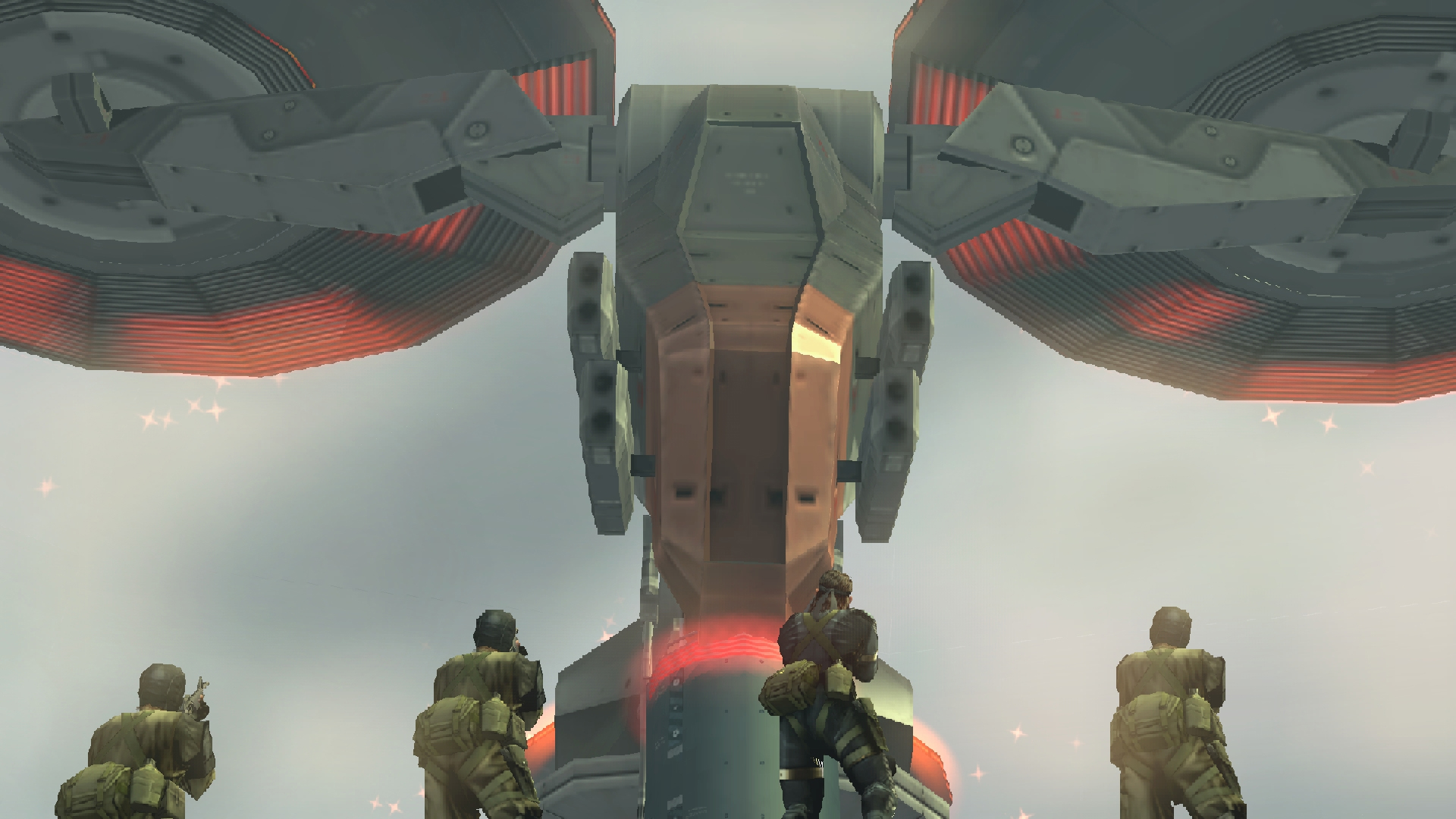
Overall, Metal Gear Solid: Peace Walker does a remarkable job of adapting the PS2-era MGS formula to PlayStation Portable. Rather than presenting a scaled-down version of the traditional sneaking mission, Peace Walker breaks up Snake's Central American exploits into a series of brief operations. And Mother Base, complete with staff to manage and a Metal Gear to build, keeps you invested even without a grand objective like infiltrating Groznyj Grad to command your attention.
Unfortunately, one aspect of this adaptation is far less successful, and it brings the rest of the game down with it: Peace Walker's boss battles are terrible. Most of them are against a forgettable series of giant robots and, unless you have co-op buddies to help you, each robot fight is glacial - they're not particularly hard, they just take forever. But the most heinous sin of Peace Walker's boss fights is their utter lack of personality. Metal Gear boss battles are supposed to be tough, emotionally exhausting narrative payoffs, not rote Monster Hunter-imitating loot hunts. And yet here I am, shooting rockets at the same dull mecha for the dozenth time, farming AI cores. It's just not right.
Final Fantasy 10's voice acting (Ashley Reed)
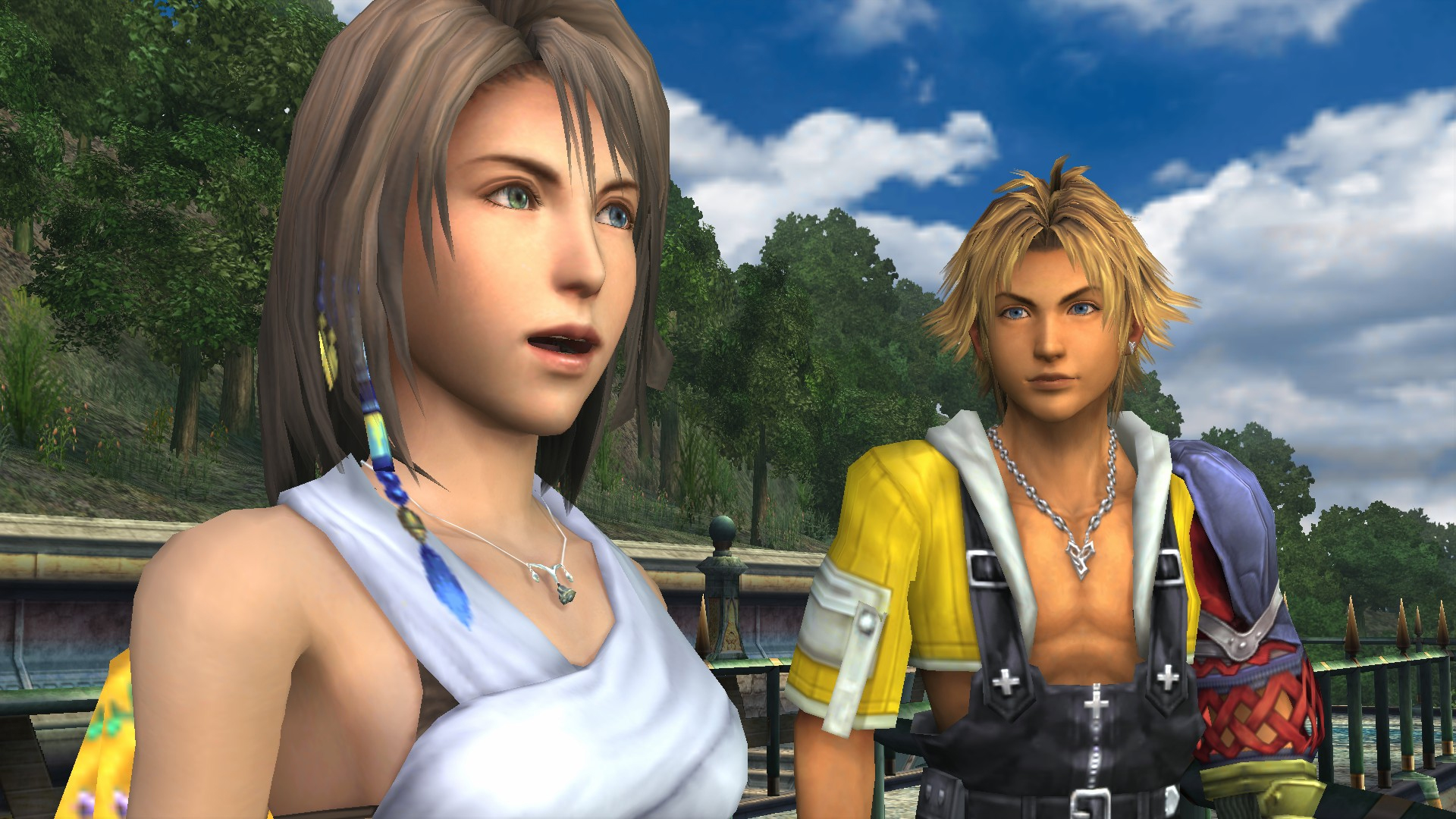
Final Fantasy 10 is a contender for my favorite game of all time. It came around at just the right time in my youth to grab me with its stellar art, strategic gameplay, and wonderfully realized storyline, and it hasn't let me go since. Even fifteen years after its initial release (hurk), it's aged beautifully, and the budding romance that develops between its adorably dorky protagonists is one of the most genuine and touching I've ever seen in any game. It's an amazing title and would basically be perfect, if only we didn't have to experience the god-awful voice-acting.
No, really, it's awful. So bad that when I recommend this game to others (which I do a lot), I always preface it with a warning to look past the voice work. Granted, it was the first Final Fantasy game to have voice talent, so some issues are expected. But between Tidus' Shatner-esque delivery and the fact that Yuna constantly sounds like she's buffering, it's hard to ignore. Plus, the lip-syncing is so off that some characters only make sounds after their mouths stop moving. Bless Rikku's Tara Strong for being a shining beacon of quality, or my mute button might've gotten a lot more exercise.
GamesRadar+ was first founded in 1999, and since then has been dedicated to delivering video game-related news, reviews, previews, features, and more. Since late 2014, the website has been the online home of Total Film, SFX, Edge, and PLAY magazines, with comics site Newsarama joining the fold in 2020. Our aim as the global GamesRadar Staff team is to take you closer to the games, movies, TV shows, and comics that you love. We want to upgrade your downtime, and help you make the most of your time, money, and skills. We always aim to entertain, inform, and inspire through our mix of content - which includes news, reviews, features, tips, buying guides, and videos.


